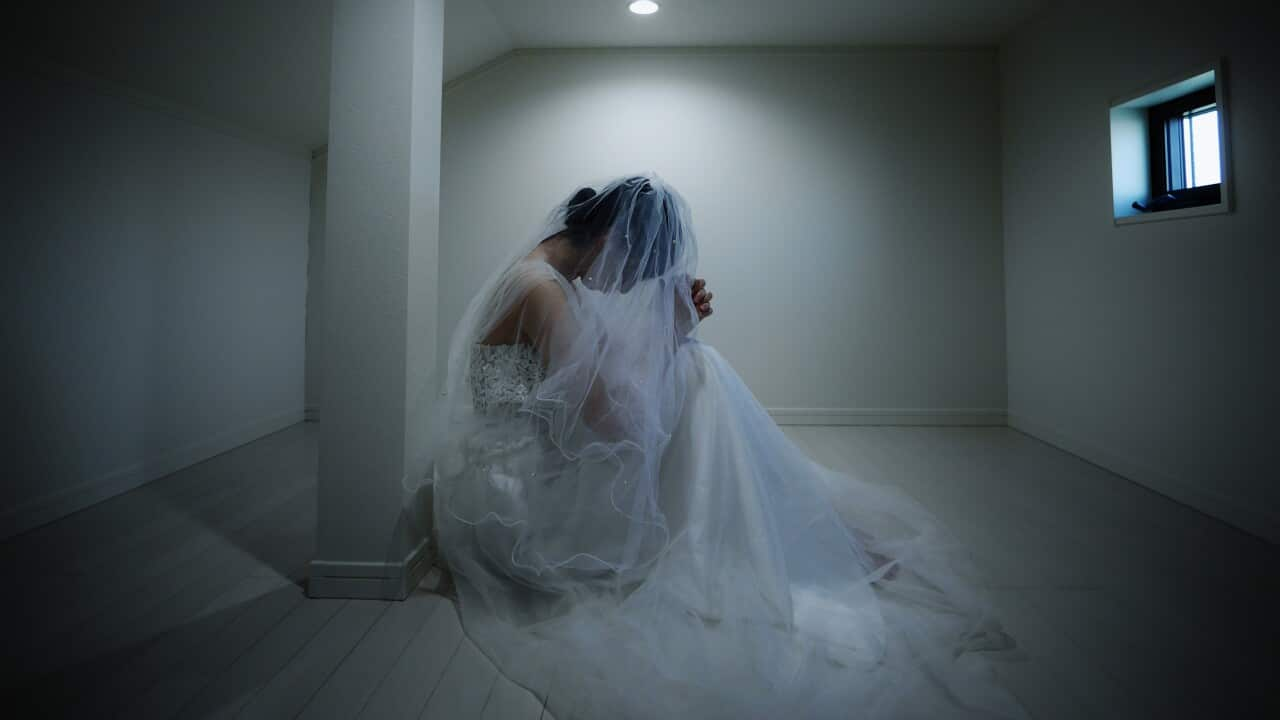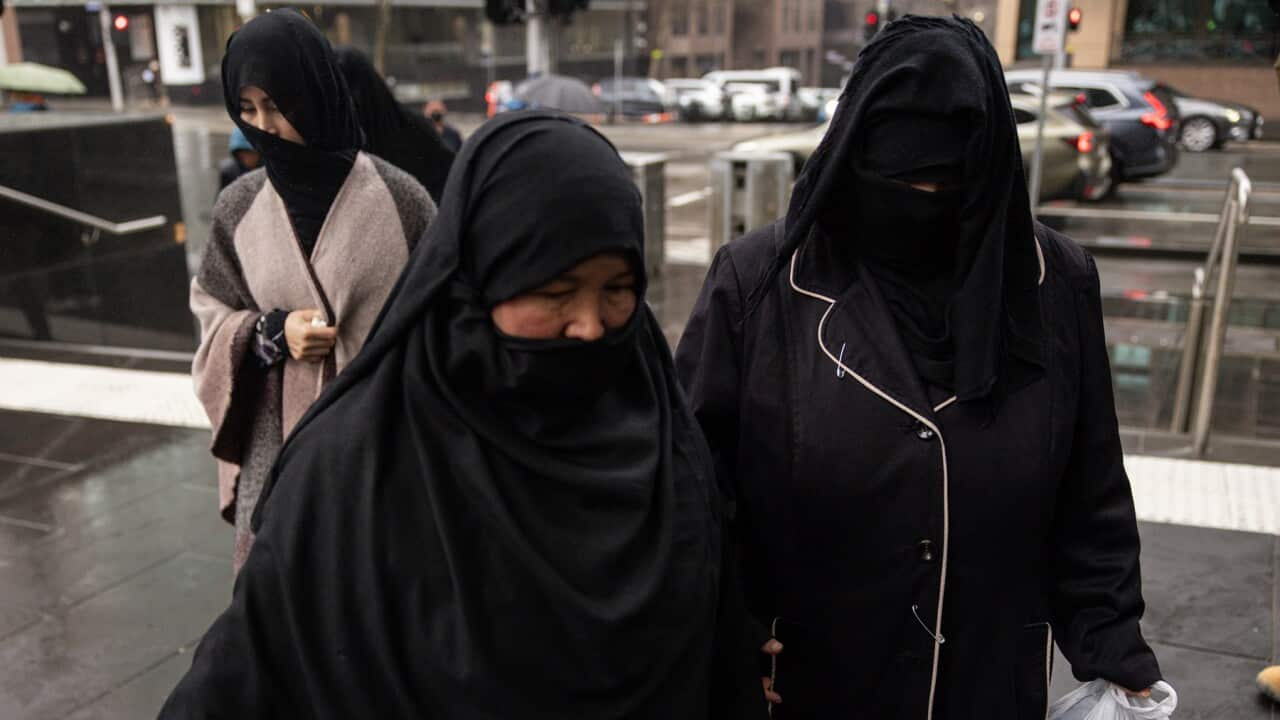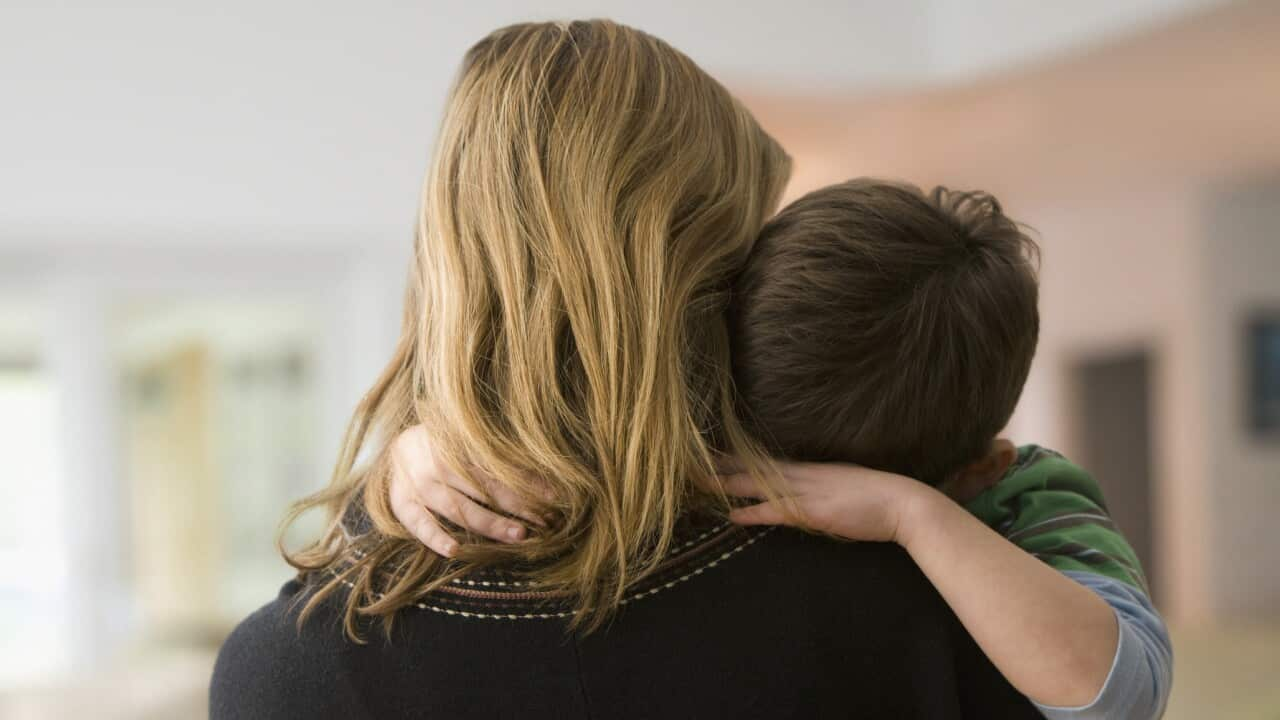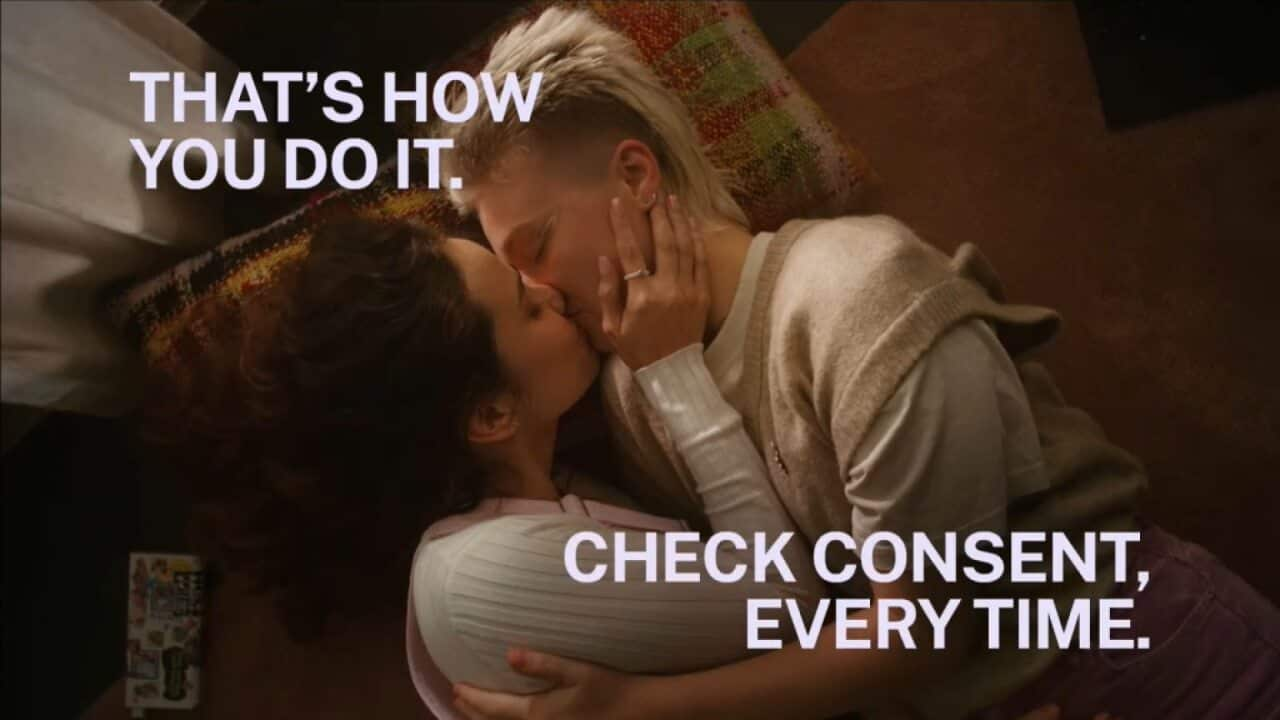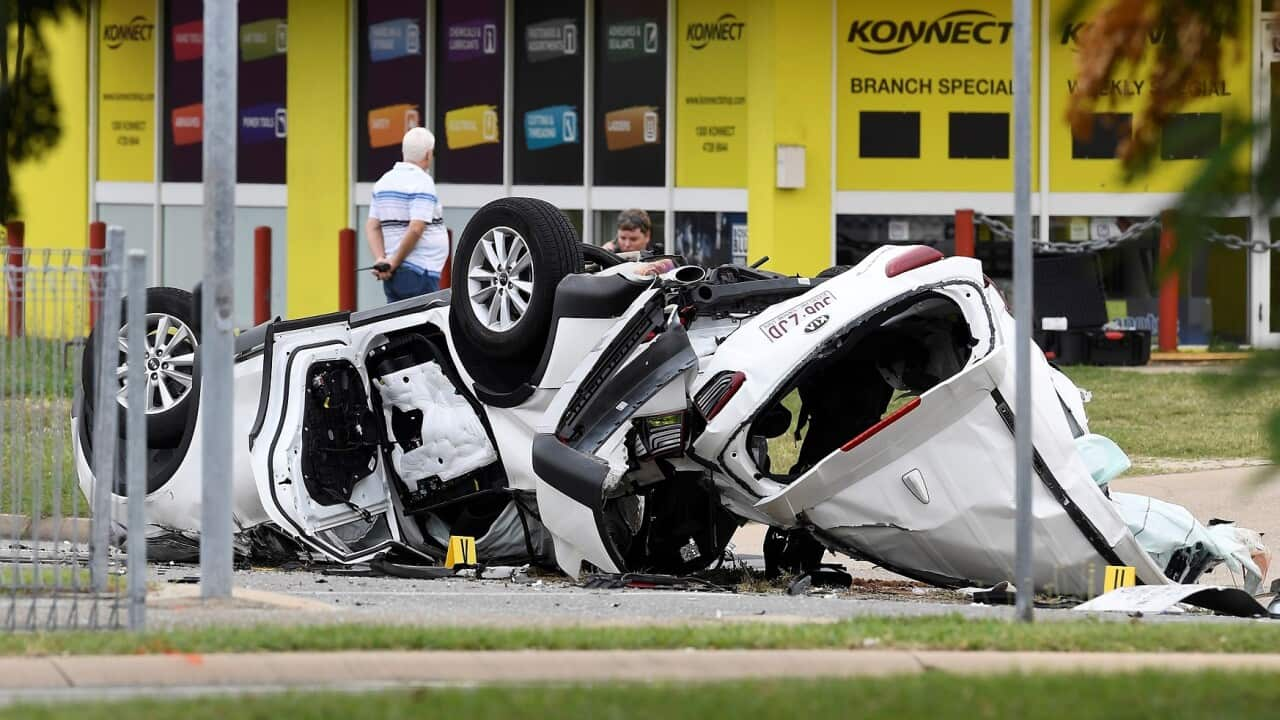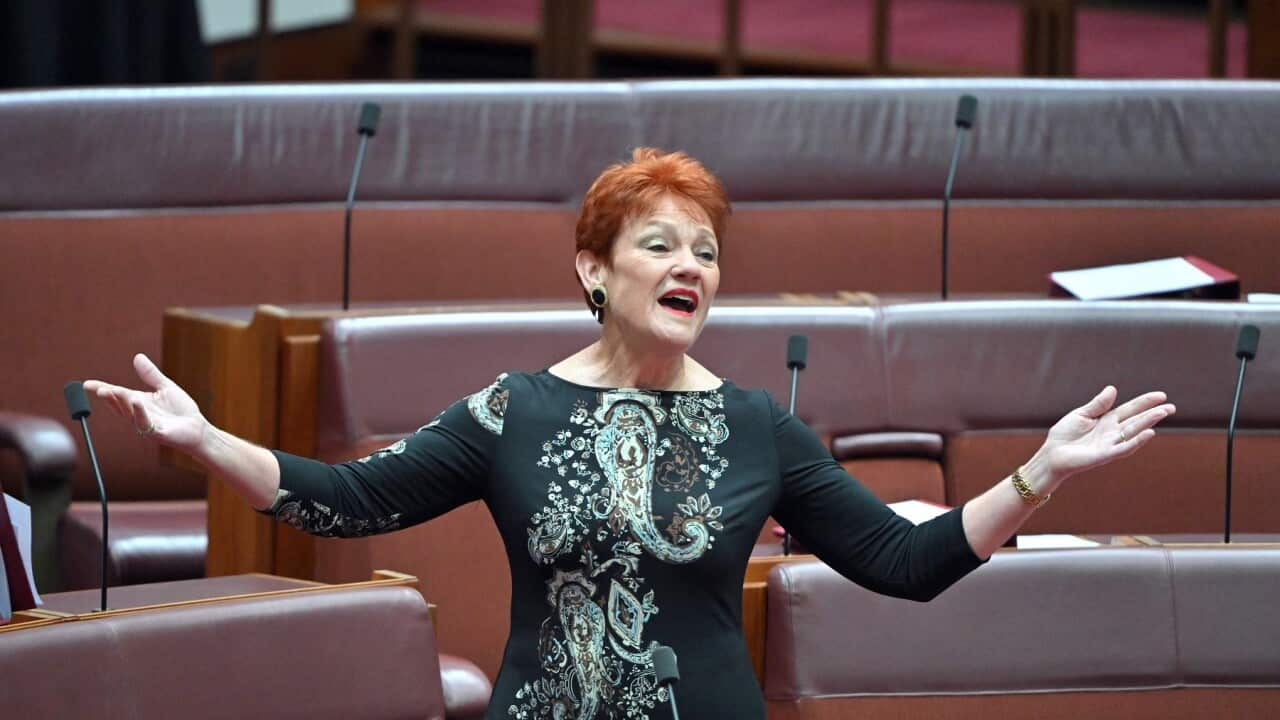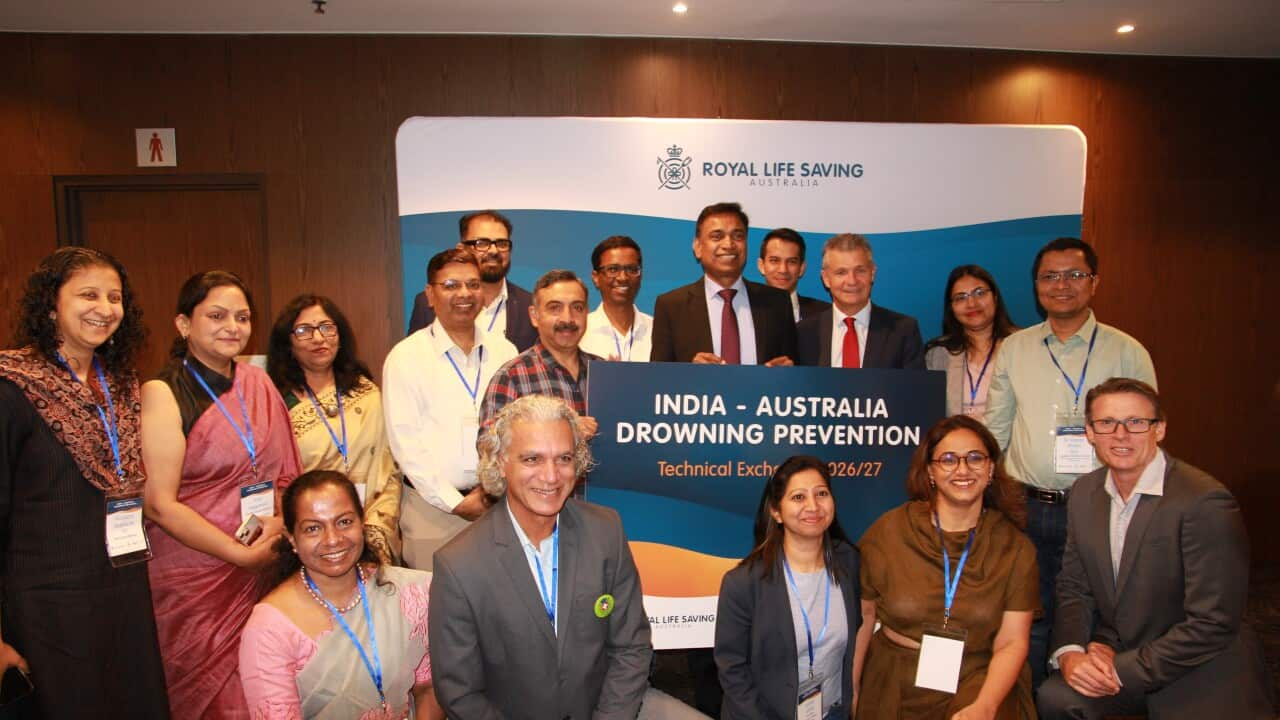Ntsiab lus tseem ceeb:
- Qhov sib txawv ntawm cov kev qhaib thiab cov kev yuam ua txij nkawm ces yog cov kev yeem.
- Cov kev yuam ib tug twg ua txij nkawm raug xam tias yog ib co kev ua txhaum cai ntawm teb chaws no raws li tsab cai Crime Legislation Amendment Act xyoo 2013.
- Cov kev yuam ib tug twg ua txij nkawm yeej yuav muaj peev xwm muaj tau rau ib tug twg - tsis hais laus los hluas, poj niam los yog txiv neej uas coj ntseeg ntau yam kab lis kev cai, kev ntseeg los yog hom neeg dab tsi li.
Mloog lwm yam xov xwm kaw ua suab tau ntawm no.
- Dab tsi yog qhov sib txawv ntawm cov kev qhaib thiab cov kev yuam ua txij nkawm?
- Yog yuam ib tug twg ua txij nkawm yuav raug plaub ntug dab tsi ntawm Australia?
- Tim tej laj thawj dab tsi thiaj yuam ib tug twg ua txij nkawm?
- Muaj kev pab cuam dab tsi rau tej neeg uas tab tom raug yuam ua txij nkawm ntawm teb chaws Australia?
- Tej zejzog muaj peev xwm ua tau dab tsi los tiv thaiv kom tsis txhob muaj cov kev yuam ua txij nkawm?
- Tej cim dab tsi pom tas mus li uas qhia tias yog cov kev yuam ib tug twg ua txij nkawm?
Lub ceeb toom txog zaj xov xwm no:
Zaj xov xwm no yuav tham txog cov kev yuam ib tug twg ua txwj nkawm. Thiab tej zaum kuj yuav ua rau ib txhia neeg uas mloog los yog nyeem ntxhov siab.
Yeej muaj tej neeg coob heev pheej tseem xav tias tsuas yuam lwm tus ua txij nkawm txawv teb chaws nkaus xwb. Tab sis qhov tseeb tiag ces yeej muaj peev xwm muaj tau tej xwm txheej no tshwm sim tau ntawm teb chaws Australia no thiab.
Tub ceev xwm teb chaws Australia (Australian Federal Police - AFP) yeej tau nrog daws tej xwm txheej yuam ib tug twg ua txij nkawm txog 91 cov xwm txheej xyoo 2023-24, ces thiaj muaj tej xwm txheej no yuav laug txog li 15 feem pua ntawm tej xwm txheej human trafficking lub caij ntawd.
Dab tsi yog qhov sib txawv ntawm cov kev qhaib thiab cov kev yuam ua txij nkawm?
Ib txhia kab lis kev cai ces yeej ib txwm muaj cov kev sib qhaib, tab sis qhov sib txawv ntawm cov kev qhaib thiab yuam ua txij nkawm ces yeej muaj cov kev yeem/pom zoo.
Cov kev qhaib ces yog ob tug neeg ntiag tug yeej pom zoo, thiab yeej ib txwm cuam tshuam nrog lawv tsev neeg.
Hos cov kev yuam ua txij nkawm ces tej zaum muaj ib tug los yog ob tug neeg ntiag tug yeej tsis tshua phom zoo sib yuav — thiab tej thaum ces yeej raug hawv, raug yuam, raug dag los sis yog tus neeg hnoob nyoog qes dua 16 xyoo, los sis yog tus neeg uas tsis tshua meej pem pes tsawg.
Ms Kudzayi Nhatarikwa, uas yog tus Migration Support Programs Adviser ntawm lub koom haum Red Cross tshab txhais tias tsis hais yuav poob rau theem twg li yog tias muaj cov kev yuam, hawv, cov kev ua kom ib tug twg ntshai los yog kev dag tsub nias rau ib tug twg kom sib yuav, ces xam tau tias cov kev sib yuav ntawd tsis yog cov kev qhaib lawm tab sis yog cov kev yuam ib tug twg ua txwj nkawm lawm.
Ms Nhatarikwa hais tias "Yog poob rau tej xwm txheej li hais los saum toj no ces yob ib cov kev yuam ib tug twg ua txwj nkawm lawm. Yog li ntawd thiaj yog qhov tseem ceeb xav kom txheeb txog qhov sib txawv no, vim rau qhov tej neeg pheej tseem yoob. Txawm tias tej neeg uas raug yuam kom sib yuav ua txij nkawm rau lub caij ntawd los yeej tseem ntseeg tias yog cov kev sib qhaib xwb,"
Nws hais tias ib tug twg muaj peev xwm raug tej teeb meem yuam kom sib yuav ua txwj nkawm no — tsis hais tus neeg ntawd laus los hluas, poj niam los yog txiv neej, yog tus neeg coj ntseeg ntau yam kawb lis kev cai los yog hais ib yam lus twg los yog coj ib co kev ntseeg twg li. Yog li ntawd cov kev yuam ua txwj nkawm thiaj yog ntiaj teb ib co teeb meem tseem ceeb thiab kuj raug lees paub tias yog ib co txaus txhawj xeeb heev ntawm Australia (uas yuav ua rau tsis tau txais kev nyab xeeb, raug kev phom sij, ua rau tsis tau txais kev noj qab nyob zoo thiab noj qab haus huv rau ib cov neeg coob heev raws li lub koom haum Concern hais).
Ms Nhatarikwa "Ntawm Australia no ces yeej lees tej xwm txheej no tias yog ib co kev yuam ib tug twg ua qhev rau tiam neej vam meej no los sis zoo li yog yuam ib tug twg ua qhev. Thiab tsis yog tib co xwm txheej uas tsuas tshwm sim rau ib pab pawg neeg coj ntseeg kab lis kev cai twg tsi ntsees xwb, los yog pab pawg neeg ua coj ib co kev ntseeg twg xwb, los sis yog ib co neeg pawg tsawg twg, los sis yog ib tsav neeg twg, yog ib co neeg muaj hnoob nyoog twg xwb los sis yog ib co gender twg xwb. Yeej muaj peev xwm tshwm sim tau rau ib tug twg. Yog li ntawd thiaj yog ib co xwm txheej uas tshwm sim tau thoob plaws rau txhua tus thiab txhua cov kab lis kev cai,"
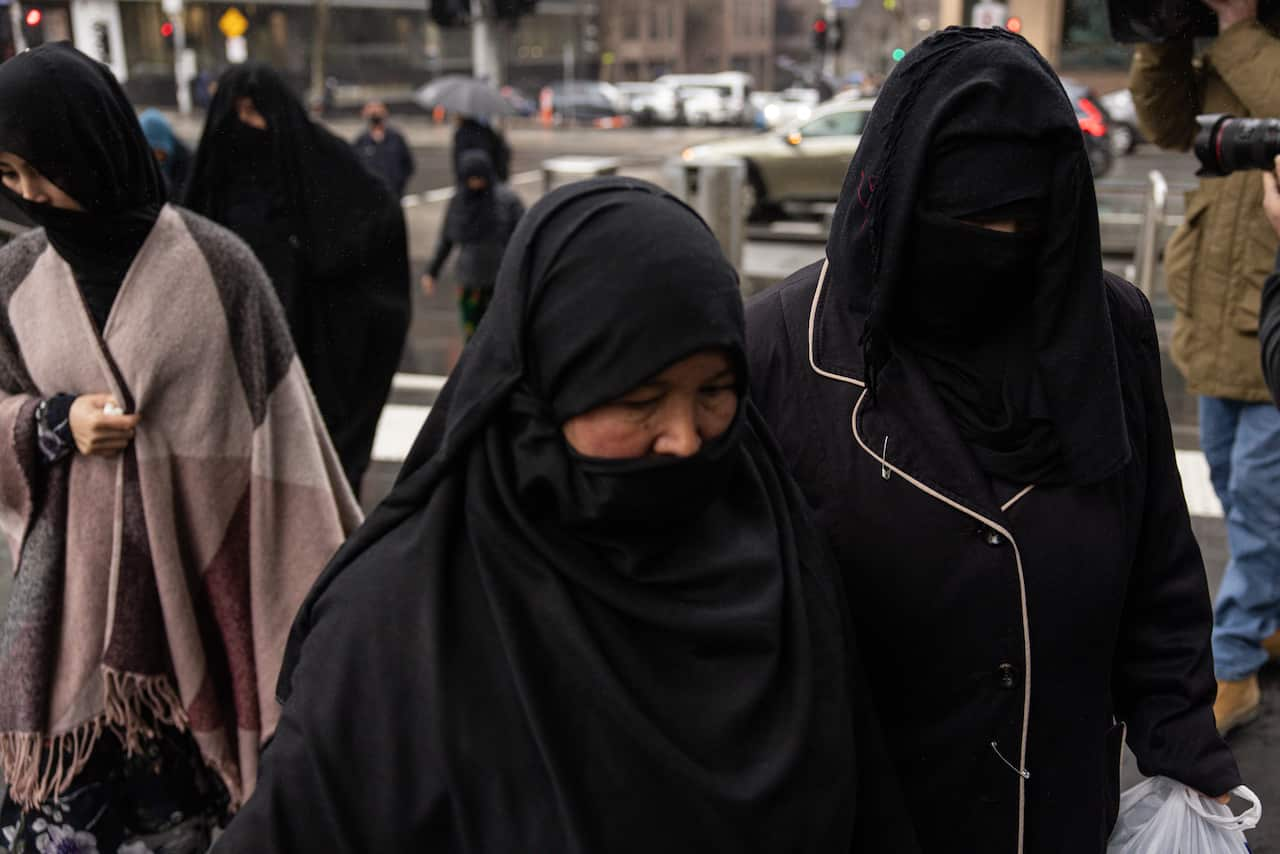
Yog yuam ib tug twg ua txij nkawm yuav raug plaub ntug dab tsi ntawm Australia?
Ntawm Australia no ces cov kev yuam ib tug twg ua txwj nkawm tsis yog tias ib yim neeg twg tej hauj lwm xwb — tab sis tseem yog ib co kev ua txhaum cai thiab.
Panos Massouris uas yog tus coj cov program pab rau tej neeg tsiv teb tsaws chaw thiab tej neeg raug yuam ua txwj nkawm (Immigration Services and Forced Marriages Program) ntawm lub koom haum Life without Barriers tshab txhais tias cov kev yuam ib tug twg ua txwj nkawm ces yog ib co kev ua txhaum cai ntawm teb chaws no raws li tsab cai Crimes Legislation Amendment Act xyoo 2013. Tsab cai no yuav siv tswj tej xwm txheej uas tau tshwm sim ntawm teb chaws Australia no los uas tau muaj ib tug neeg ntiag tug twg coj mus sib yuav txawv teb chaws.
Mr Massouri thiaj hais tias "Vim yog ib cov kev ua txhaum tsoom fwv teb chaws tej cai, ces tub ceev xwm teb chaws (Australian Federal Police) thiaj yuav mus tshuaj ntsuam thiab txheeb txog cov kev yuam ua txwj nkawm no, thiab yuav txheeb tias seb cov kev sib yuav ua tau tshwm sim ntawm tej zejzog, sib yuav raws kab lis kev cai, tej koom txoos kev ntseeg thiab cov kev teev zwm nrog nom tswv tias ob tug neeg tau nyob ua ke raws kev raws cai seb puas yog ib co kev ua yuam ib tug twg ua txwj nkawm."
Tim tej laj thawj dab tsi thiaj yuam ib tug twg ua txij nkawm?
Tej xwm txheej yuam lwm tus ua txwj nkawm feem ntau tshaj plaws yeej cuam tshuam nrog tej poj niam hluas los yog tej me nyuam ntxhais hnoob nyoog txij 14 txog 18 xyoo. Ms Nhatarikwa tshab txhias tias muaj ntau yam laj thawj ua rau muaj cov kev yuam ua txwj nkawm no sib txawv, tsuas nyog rau tej neeg ntiag tug thiab tej xwm txheej cuam tshuam xwb.
Ms Nhatarikwa hais tias "Cov kev yuam ua txwj nkawm muaj peev xwm tshwm sim tau kom ua tau raws li ib yim twg los yog ib lub zejzog twg xav tau kom ua tau raws li tej kab lis kev cai uas poj niam txiv neej ib txwm ua. Hos lwm cov xwm txheej ces yog tsuas ua kom ib yig twg los yog ib lub zejzog twg rau ib co caij nyoog twg kom muaj peev xwm ua tau tej kev cai no txuas ntxiv qee zaus. Tsis tas li ntawd los peb kuj tau pom tias tej niam txiv los yogt ej uas pab kom muaj peev xwm ua tau cov kev yuam ib tug twg ua txij nkawm tshwm sim no ntseeg tias tej lawv ua no yog qhov zoo tshaj plaws rau tus hluas ntawd, txawm tias qhov tseeb tiag yog ua rau muaj teeb meem tsis zoo rau nws. Lawv ntseeg tias yog lawv lub luag hauj lwm yuav los xaiv kom tau tus txij nkawm zoo tshaj plaws rau nws."
Hana Assafiri ces yog ib tug neeg uas xyuas kom muaj kev pauv hloov kom tau txais kev ncaj ncees thiab tau txais kev vaj huam sib luag thiab kuj yog ib tug tawm tsam pov puag poj niam txoj cai ntawm Melbourne.
Xyoo 2017 ces nws kuj tau raug teev npe los txais cov khoom plig Victorian Honour Roll of Women rau tej hauj lwm nws los ua kom muaj kev pauv hloov thiab cov kev txhawb nqa tej poj niam muaj peev xwm los ua tus tswj tau lawv lub neej. Nws los kuj tau txais cov khoom plig Order of Australia Medal (OAM) xyoo 2019 thiab.
Nws tau sau nws thawj phau ntawv xyoo 2024 tis npe hu ua "Hana: The Audacity to be Free", uas qhia txog tej xwm txheej tsov rog thaum nws tseem yog yau thiab teb chaws Australia, thiab qhia txog nws cov kev tau tsiv tawm ntawm cov kev ua txwj nkawm uas tsis yog nws xaiv, thiab tej hauv kev uas nws rov qab los txhim kho dua nws tus kheej tshiab thaum muaj hnoob nyoog 20 xyoo.
Ms Assafiri hais tias "Kuv tseem yog ib tug uas tseem yau heev ntawm teb chaws Australia, thiab kuv civ kev sib yuav ua txij nkawm, txawm tias zoo li tsis yog raug yuam kom sib yuav los tau ua rau kuv mloog tau tias tsuas yog tib txoj xub ke xaiv rau kuv lawm xwb. Ces thiaj tsis paub tias seb kuv ho raug yuam txog theem twg? Thiab ho yuav muaj tau teeb meem npaum li cas rau kuv rau ib co xwm txheej twg? Thiaj ua rau kuv xav tias tej zaum cov kev sib yuav ua txij nkawm thaum muaj 15 xyoos thiaj yog tib txoj xub ke pab kom yus tau txais kev ywj pheej, tau meej mom, tau txais kev hwm thiab pab kom kuv tsis txhob raug teeb meem xwb. Ces thiaj muaj qee yam zoj khi kuv thiab thiaj ua rau kuv cov kev sib yuav zoo li sib qhaib no thiaj tsuas yog tib txoj xub kev rau kuv xaiv lawm xwb."
Muaj kev pab cuam dab tsi rau tej neeg uas tab tom raug yuam ua txij nkawm ntawm teb chaws Australia?
Yeej muaj ntau yam kev pab cuam rau ib tug twg uas raug yuam ua txij nkawm.
Ms Nhatarikwa tshab txhais tias lub koom haum Red Cross yeej tau pab tej neeg raug yuam ua txij nkawm txij xyoo 2014 los lawm.
Nws hais ntxiv tias "Yog tias koj txhawj txog ib tug phooj ywg, ib tug neeg ntawm koj tsev neeg, ib tug neeg ua hauj lwm ua ke, los yog ib tug twg uas koj paub tias tej zaum yuav raug yuam kom sib yuav ua txij nkawm, thiab xav tau txais kev taw qhia tias yuav ua li cas kom thiaj tau txais kev pab cuam yam tsis coj tej teeb meem no coj mus qhia rau lwm tus paub, ces koj muaj peev xwm sib txuas lus tau nrog lub koom haum Red Cross raws tus zauv xov tooj 1800 113015 los yog xa ib tsab ntawv rau tus email: national_stpp@redcross.org.au tau."
Txij lub 1 hlis ntuj xyoo 2025, ces Australia Australia tau tsim dua cov program tshiab hu ua Forced Marriage Specialist Support Program (FMSSP) coj los apb tiv thaiv thiab pab raus tes rau tej xwm txheej no thaum tseem ntxov. Tej neeg ntiag tug muaj peev xwm coj lawv tus kheej mus koom siv cov program no, thiab muaj peev xwm hu rau cov program no tus xov tooj 1800 403 213 los sis muaj peev xwm mus txheeb tau ntawm lawv lub vas sab (website).
Ms Nhatarikwa thiaj xav qhia tias yog ib tug twg yuav raug kev phom sij kiag tam sim ntawd thiab xav tau txais kev pab cuam kom sai kiag, ces tsim nyog hu rau tus zauv xov tooj Triple-Zero (000) thov tub ceev xwm pab.
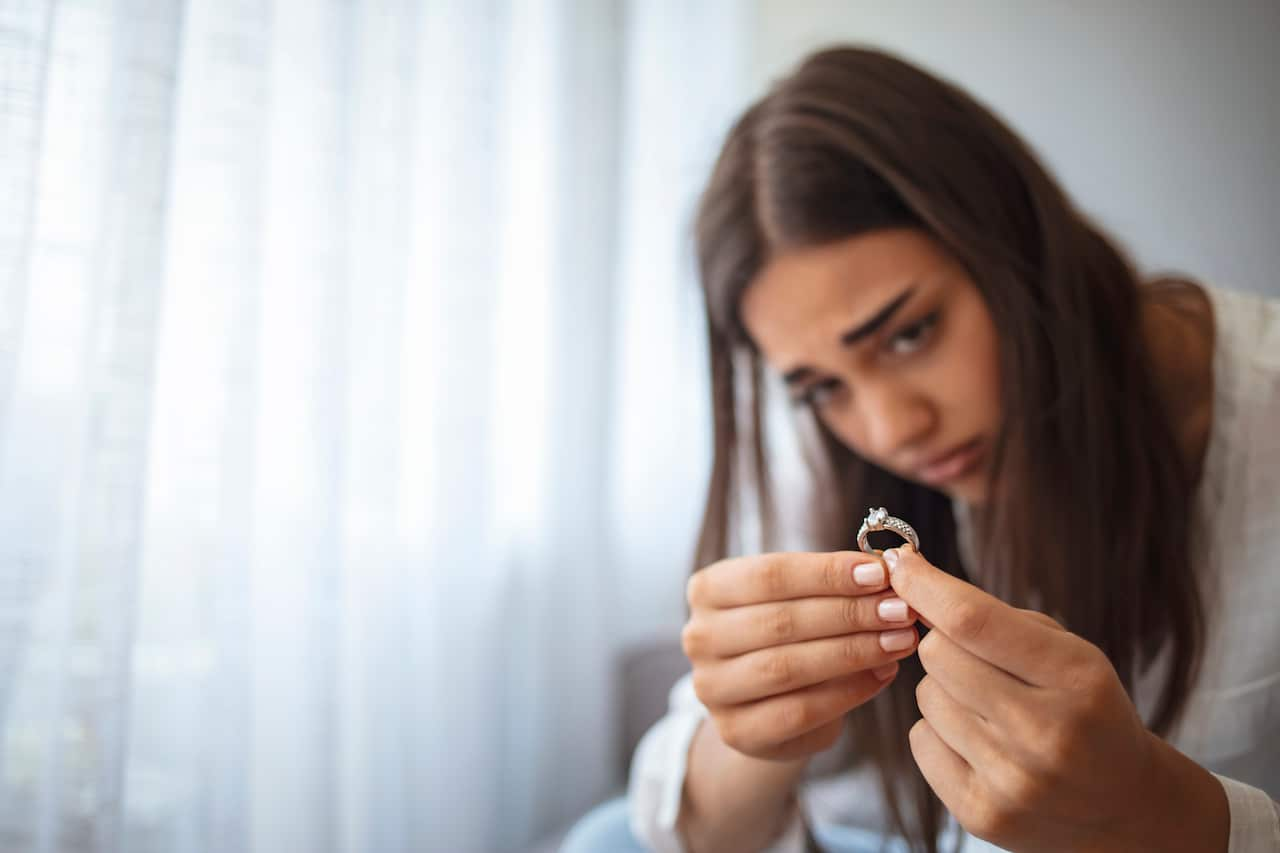
Hos lwm cov xwm txheej, ces yog tias ib tug twg yuav raug yuam ua txwj nkawm los yog txhawj tias tsam muaj ib tug twg yuav rau tej xwm txheej no, ces muaj peev xwm hu rau tub ceev xwm teb chaws tus xov tooj 131 237 los yog sau ib daim ntawv qhia rau lawv hauv online tau.
Tej neeg uas tej zaum yuav raug yuam ua txwj nkawm uas tsis xav qhia rau tub ceev xwm paub los yeej muaj tej kev pab cuam ntawm lub koom haum Salvation Army pab thiab.
Ms Nhatarikwa tshab txhais txog tias lawv yuav txheeb li cas ib tug twg thiaj muaj cai siv tau cov program pab cuam no.
Yog koj xav tau kev pab ces koj muaj peev xwm hu rau rau lub koom haum Salvation Army tus xov tooj 1300 473 560 los yog sib txuas lus nrog lawv hauv lawv lub vas sab tau.
She kuj tau qhia txog lub koom haum My Blue Sky, uas yog Australia ib lub koom haum uas tsim cov kev pab cuam no rau haiv neeg no li muaj tej xov xwm qhia txog cov kev raug yuam ua txwj nkawm, cai lij choj, kev tsiv teb tsaws chaws rau tej neeg uas raug tej teeb meem no. Koj yeej muaj peev xwm txheeb tau ntawm lub koom haum My Blue Sky thiab hu xov tooj rau lawv raws tus zauv xov tooj (02) 9514 8115, los sis xa xo (SMS) rau tus xov tooj 0481 070 844, los yog sau ntawv xa rau tus email: help@mybluesky.org.au.
Ms Nhatarikwa hais ntxiv tias "My Blue Sky ces yog lub koom haum Anti-Slavery Australia ua tus tsim coj los pab cuam rau tej neeg raug tej teeb meem no. Yog ib cov kev pab dawb, tsis qhia rau lwm tus paub. Yog li ntawd tej neeg ntiag tug los yog tej tub koom siab ntawm tej zejzog los sis ib tug twg uas txhawj xeeb txog tej xwm txheej (raug yuam ua txwj nkawm) no yeej muaj peev xwm mus txheeb tau ntxiv ntawm lawv lub vas sab. Tsis tas li ntawd los muaj peev xwm hu tau xov tooj, xa email rau lawv los yog xa text message rau lawv tau thiab."
Tej zejzog muaj peev xwm ua tau dab tsi los tiv thaiv kom tsis txhob muaj cov kev yuam ua txij nkawm?
Cov kev paub txog los yog tau pom dua tej cim ntau yam txog tej xwm txheej (yuav ib tug twg ua txij nkawm) no yog ib co kev tiv thaiv tseem ceeb, yuav pab kom muaj peev xwm raus tes thaum tseem ntxov thiab pab kom tau txais kev pab cuam.
Tam li ib feem ntawm cov kev xav los daws tej teeb meem uas pheej nyiag/yuam ib tug neeg twg mus siv yam tsis raug cai kom tau txais txiaj ntsim no, lub koom haum Australian Centre to Counter Child Exploitation (ACCCE), uas tub ceev xwm teb chaws (Australian Federal Police - AFP) tswj thiaj tau nqua hu rau tej teej kawm kom xyuam xim ceev faj txog tej cim uas tej zaum tej me nyuam raug yuam ua txij nkawm, vim cov kev yuam ib tug twg sib yuav ua txwj nkawm no feem ntau ces raug cej luam qhia tam li yog ib cov human trafficking offences ntawm teb chaws Australia.
Nyob rau ib co media release, uas Helen Schneider uas yog AFP tus Commander uas tswj cov xwm txheej yuam siv tib neeg yam tsis raug cai (Human Exploitation) qhia tej cim ntau yam ntawm cov kev yuam ua txij nkawm uas yuav pab kom tej neeg ntiag tug muaj peev xwm txheeb tej xwm txheej no tias seb puas yog lawv raug yuam ua txij nkawm.
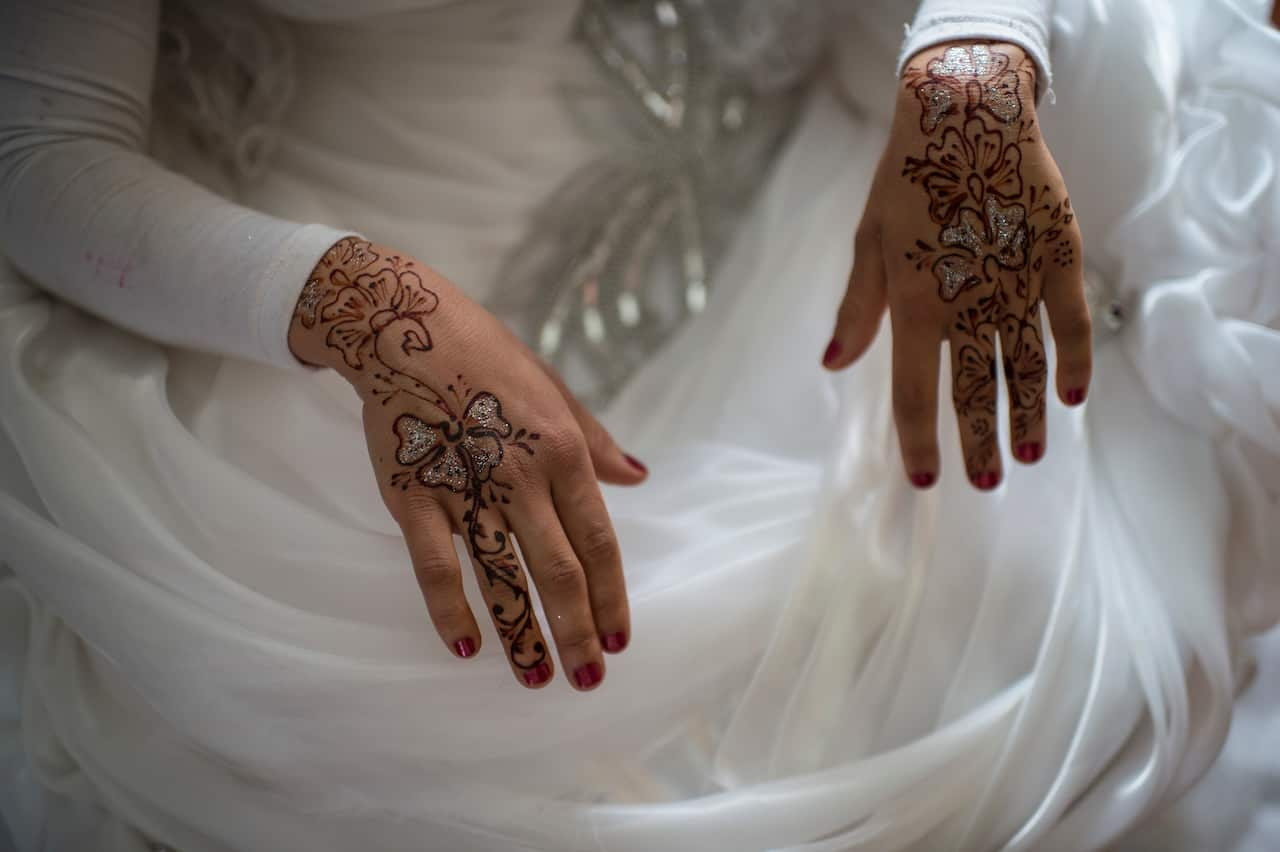
Tej cim dab tsi pom tas mus li uas qhia tias yog cov kev yuam ib tug twg ua txij nkawm?
- Cov kev muaj keeb kwm dhau los li yus tej nus muag tau ntsib tej xwm txheej no dhau los, los yog pheej tawm thaum ntxov tsis tau kawm ntawv txuas ntxiv, los yog sib yuav thaum ntxov los yog qhia tias muaj kev txhawj xeeb txog cov kev sib yuav thaum ntxov.
- Ib tug neeg ntiag tug twg yeej raug nws tsev neeg los yog tej neeg ntawm nws lub zejzog tsis hais ntawm nws tsev neeg los yog sab nrauv tswj nruj heev, soj, los yog nrog nraim; los sis pheej ua rau ib tug twg tsuas muaj peev xwm siv tau nyiaj tsawg tsawg los yog tsis muaj peev xwm tswj yus cov kev siv nyiaj li; los yog yeej tsuas muaj peev xwm tswj tau yus cov kev txiav txim siab, kev kawm thiab kev xaiv ua hauj lwm me ntsi xwb los sis yeej tsis muaj peev xwm txiav txim siab ib yam dab tsi rau tej no hlo li.
- Raug lwm tus soj yus cov kev sib tham sib txuas lus nrog lwm tus neeg los yog raug txwv tsis pub yus nrog ib tug twg tham.
- Qhia txog cov kev txhawj xeeb txog yus tsev neeg cov kev yuav mus ntoj ncig (holiday) uas yuav txog sai sai no los yog yuav mus ntoj ncig txawv teb chaws.
- Qhia txog lawv cov kev tsis pom zoo los yog kev txhawj xeeb txog tias tsam yuav muaj teeb meem yog tias lawv tsis yuam ib tug twg sib yuav ua txij nkawm raws li tau muaj kev pom zoo, los yog raws li tau sib qhaib tseg; thiab
- Qhia txog lawv cov kev txhawj xeeb txog lawv lub cev ntaj ntsug los sis cov kev kub ntxhov uas lawv tau ntshai rau sab siab ntsws yog tias lawv tsis ua raws li lawv tsev neeg los yog lawv tej zejzog cov kev vam kev cia siab kom ua.
Ms Hana Assafiri thiaj hais tias tsis tsim nyog ib tug twg yuav raug yuam kom sib yuav ua txij nkawm li. Nws thiaj nqua hu kom tej poj niam hluas uas ntsib tej xwm txheej no mus thov kev pab cuam thiab siv tej xov xwm uas nrhiav tau ntawm Australia no.
Nws hais tias "Yeej tsis yog tej yam zoo uas pheej yuav yuam ib tug twg tsis hais tus neeg ntawm yuav coj kab lis kev cai dab tsi, kev tseeg hom twg zoo li cas li, los yog lub teb chaws zoo li cas li, cov kev ua txwj nkawm zoo tshaj plaws yog cov uas ob tog nkag siab thiab paub tias nkawv tab tom ua dab tsi thiab yeej sib yeem, thiab tau txais kev ywj pheej rau lawv cov kev ua tib zoo txiav txim siab zoo rau cov kev sib yuav no lawm."
Yog tias koj los yog ib tug twg uas koj paub raug teeb meem kub ntxhov hauv lub cuab yig ces hu rau lub koom haum 1800RESPECT tus zauv xov tooj 1800 737 732, los si xa xo (text message) rau tus xov tooj 0458 737 732, los yog mus txheeb tau ntawm lub vas sab1800RESPECT.org.au. Thiab yog tias ho poob rau tej xwm txheej ti tes ti taw uas yuav raug kev phom sij rau koj los yog ib tug twg txoj sia ces hu rau Triple-Zero (000).
Lub koom haum No to Violence yog lub uas tsim cov kev pab cuam The Men’s Referral Service, uas koj muaj peev xwm hu rau lawv tau raws li tus zauv xov tooj 1300 766 491.
Subscribe los yog caum mloog tej xov xwm kaw ua suab Australia Explained kom paub txog ntau yam xov xwm tseem ceeb thiab tej lus taw qhia kom koj pib tau lub neej tshiab ntawm teb chaws Australia.
Yog tias koj muaj ib co lus nug dab tsi los yog muaj ib co tswv yim dab tsi? Ces xa email rau peb rau ntawm australiaexplained@sbs.com.au
Mloog tau xov xwm tshiab ntawm SBS Hmong, download SBS Adio app thiab caum SBS Hmong Facebook page.
